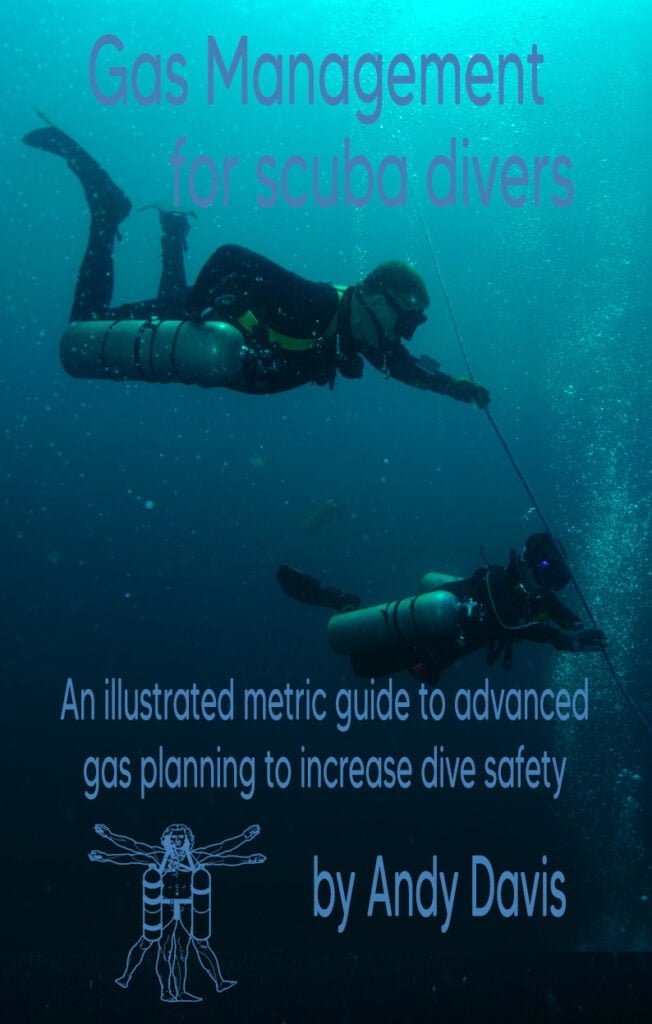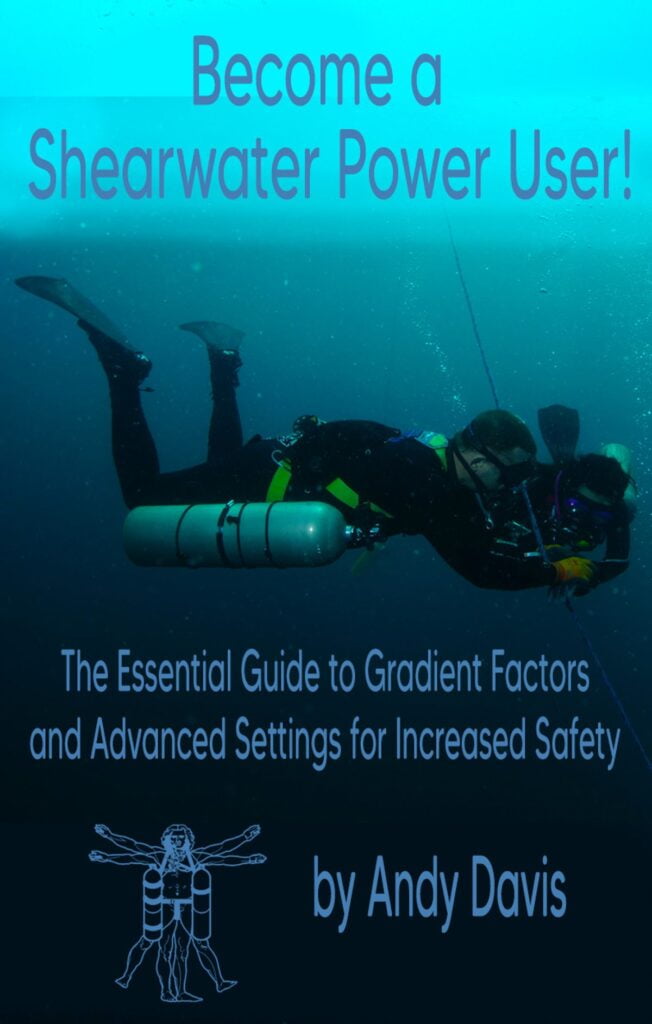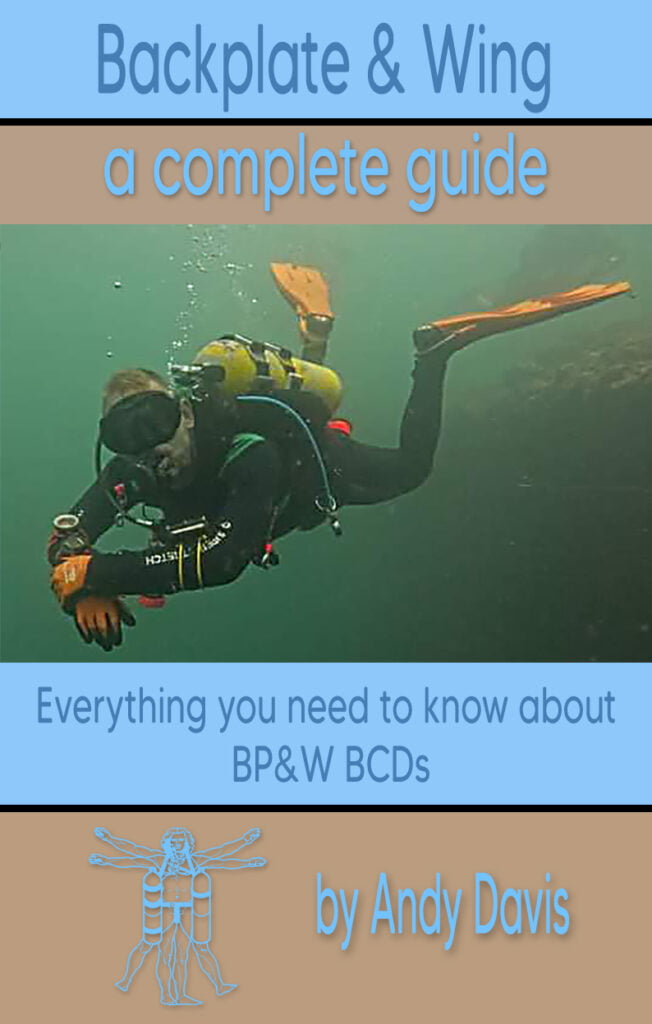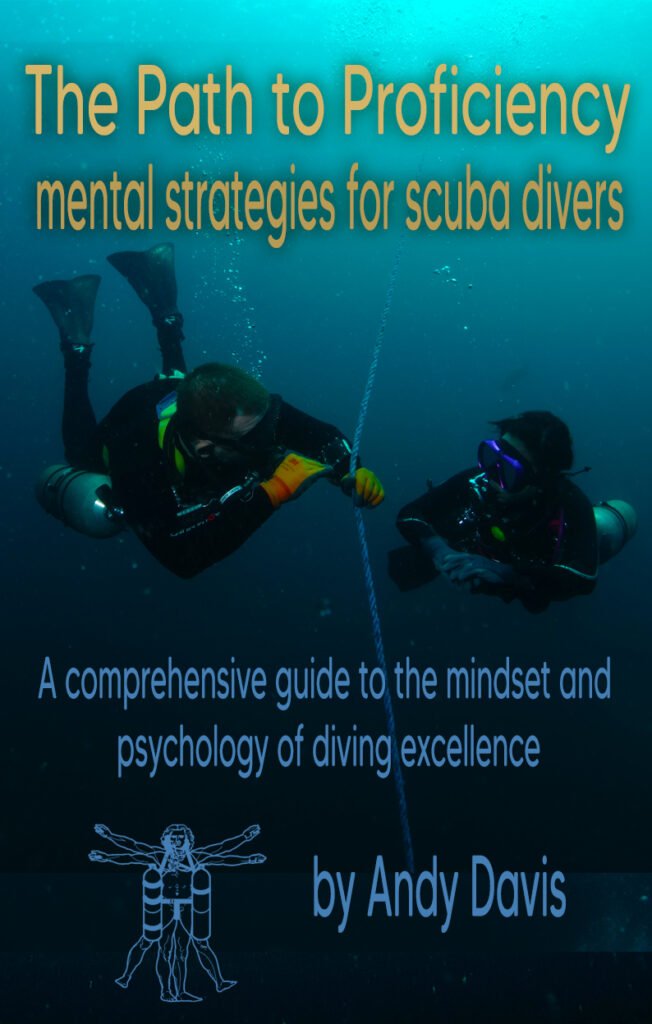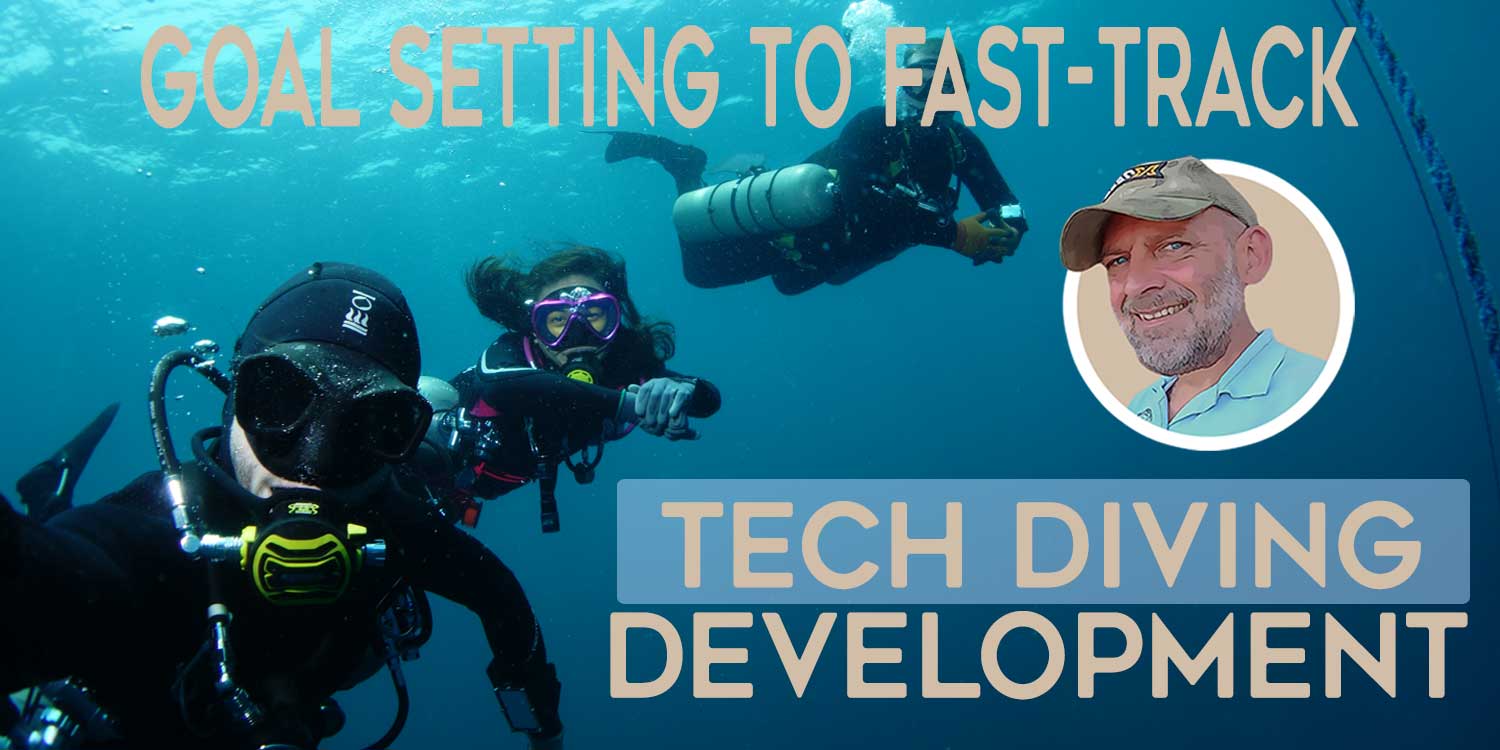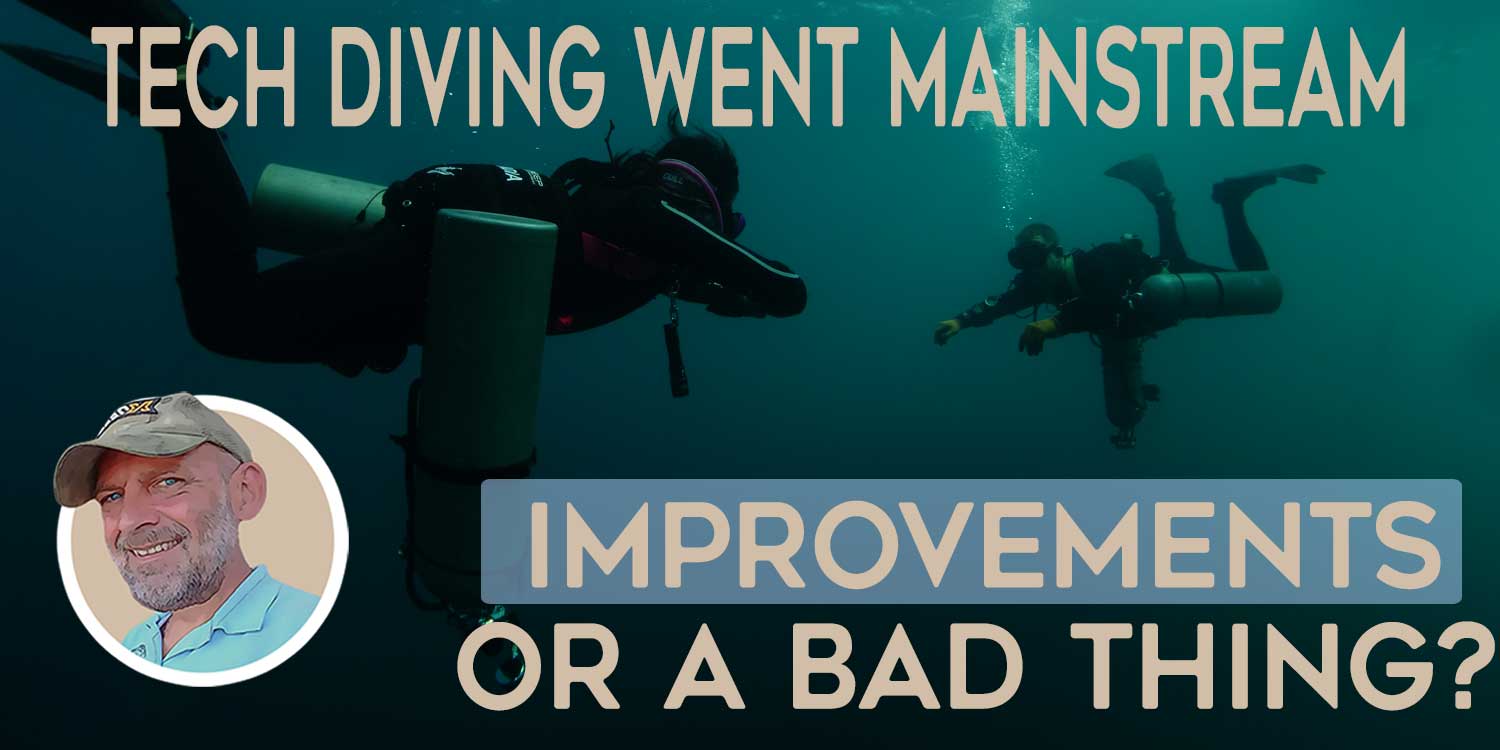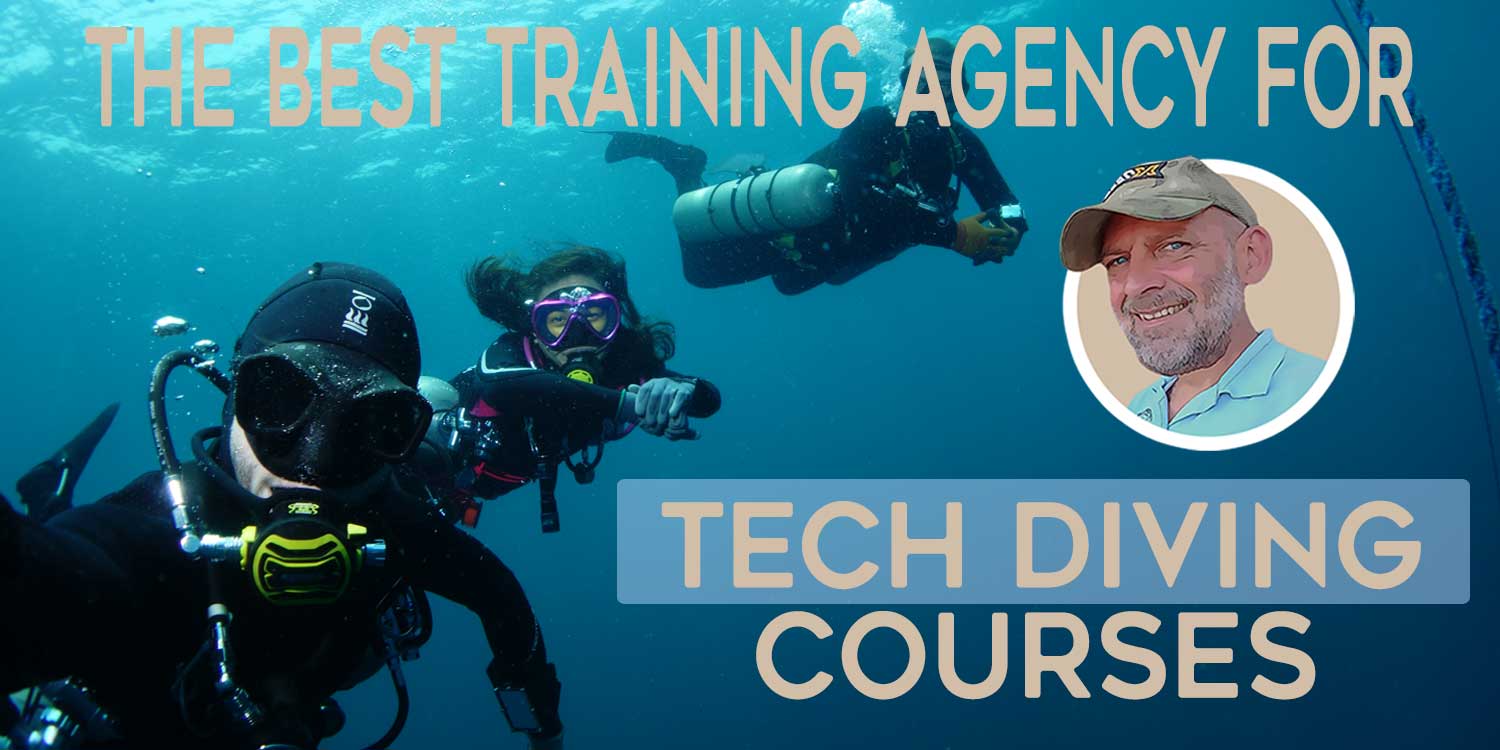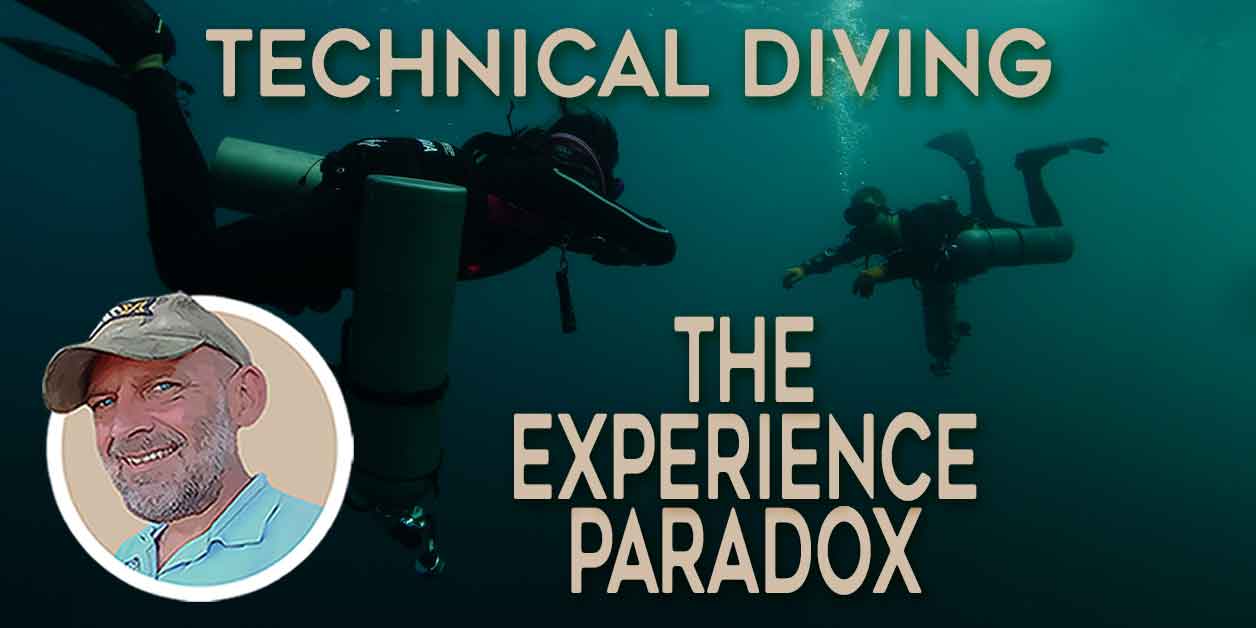Technical Diver Traits: Understanding Personality Factors and Dive Safety
As a technical diver, you already know the importance of advanced training, specialized equipment, and meticulous planning. However, technical diving is not just about knowledge and gear, but also about personal qualities, attitudes and technical diver traits that can make a difference between success and failure, life and death.
In this guide, I will explore the essential traits of technical divers, including mindset, self-awareness, communication, teamwork, diligence, and attention to detail. This will include an explanation of individual personality factors and examples of how those influence performance in technical diving. Finally, I will also provide practical tips and strategies for developing and improving these traits, such as training, mentoring, mindfulness, and gaining experience beneficially.
Whether you are a seasoned technical diver or just starting your journey, this guide will help you enhance your performance, safety, and enjoyment in the underwater world.
Personality Traits in Technical Diving
As a technical diver, you need to possess certain personality traits that can impact your safety and the safety of your team during a dive. In this section, we will explore the key personality traits that are important for technical divers to have.
Overview of personality traits and their impact on technical diving
Personality traits are individual differences in patterns of thinking, feeling, and behaving. They can impact how you approach and react to different situations, including those encountered during a technical dive. Understanding your personality traits and how they can affect your dive can help you make better decisions and improve your safety.
Key personality traits for technical divers
Risk-taking propensity
Technical diving involves higher risks compared to recreational diving. As a technical diver, you need to have a good understanding of risks and how to manage them. Your risk-taking propensity can impact your decision-making process, and it’s important to recognize your level of comfort with risk-taking.
Self-confidence
Self-confidence is essential for technical divers, as it can affect your performance and decision-making during a dive. However, overconfidence can lead to complacency and increase the risk of accidents. It’s important to strike a balance between confidence and humility.
Self-awareness
A technical diver is unlikely to have a valid level of confidence without a strong capacity for self-awareness. Being self-aware is necessary for honest self-evaluation and to learn lessons from experience. Without self-awareness, a diver can be prone to gross overconfidence and is more susceptible to complacency.
Stress management
Technical diving can be stressful, and it’s essential to manage stress effectively to ensure safety. Good stress management skills can help you stay calm and focused during an emergency.
Attention to detail
Technical diving requires a high level of attention to detail to ensure safety. Small mistakes can have severe consequences, and paying attention to detail can help prevent accidents.
Situational awareness
Situational awareness refers to your ability to perceive and understand your environment and how it’s changing. As a technical diver, you need to be aware of your surroundings, your equipment, and the status of your dive team.
Communication skills
Effective communication is crucial in technical diving, as it helps ensure the safety of the entire team. You need to be able to communicate effectively with your team members, even in stressful situations. Good communication skills can help prevent accidents and promote teamwork.
The Impact of Personality Traits on Dive Safety
The link between personality traits and dive safety
Research has shown that personality traits can impact dive safety. Certain personality traits can affect how technical divers approach and react to different situations during a dive, which can impact their safety and the safety of their team.
Research studies on the relationship between personality traits and dive safety
Research studies have been conducted to investigate the relationship between personality traits and dive safety in technical diving.
One recent study from the Spanish Navy looked at the association between personality traits and general scuba training performance. The study found that better adaptation to underwater performance was associated with high levels of conscientiousness and emotional stability, as well as low levels of impulsivity and sensation seeking.
Additionally, non-diving studies examined the relationship between personality traits and performance behaviors that can be applied to technical divers. For instance, studies have described that individuals who scored higher in extraversion and neuroticism tended to engage in riskier behaviors. Additionally, research suggests that individuals who score high in neuroticism and low in conscientiousness may be more likely to panic.
Personality traits have also been found to play a role in team dynamics and communication. One study found that effective communication was linked to higher levels of agreeableness and openness to experience, while lower levels of agreeableness and conscientiousness were associated with poor communication and team dynamics.
Overall, these studies suggest that personality traits can have an impact on dive safety, with certain traits associated with better or worse performance, communication, and decision-making. However, more research is needed to fully understand the relationship between personality traits and dive safety in technical diving.
Examples of how personality traits can affect dive safety
Risk-taking propensity and decision making
Technical divers with a high propensity for risk-taking may make more impulsive decisions during a dive. Additionally, they may be more likely to neglect risk mitigation actions when they become an inconvenience. This can increase the risk of accidents.
It’s essential to recognize your level of comfort with risk-taking and make informed decisions based on your training and experience. Following a structured risk management process can help avoid mistakes caused by a risk-tolerant personality.
Self-confidence versus overconfidence
Technical divers with high levels of self-confidence can be more assertive in their decision-making, but overconfidence can lead to complacency and an increased risk of accidents. It’s important to strike a balance between confidence and humility to ensure safety.
That can be achieved by individuals with a very high level of self-awareness. Otherwise, knowing the difference between justified self-confidence and overconfidence is reliant upon peer critique and expert guidance.
Stress management and panic
Technical diving can be stressful, and divers who are not able to manage their stress effectively may panic in emergency situations. Panic can lead to poor decision-making and an increased risk of accidents. Good stress management skills can help prevent panic and ensure safety.
Attention to detail and risk avoidance
Technical diving requires a high level of attention to detail to ensure safety. Divers who are not thorough in their dive planning, equipment configuration, and pre-dive checks may miss potential issues that can lead to accidents.
Situational awareness and emergency response
Situational awareness is essential in technical diving, as divers need to be aware of their surroundings and the status of their dive team. Divers who are not aware of their surroundings may not be able to respond effectively in emergency situations, which can lead to accidents.
Communication skills and team dynamics
Effective communication is crucial in technical diving, as it helps ensure the safety of the entire team. Divers who are not able to communicate effectively with their team members may misunderstand instructions or miss important information, which can lead to accidents. Good communication skills can help prevent accidents and promote teamwork.
Assessing personality traits for technical diving
Technical divers engage in challenging and risky activities, which require a high level of self-awareness, self-control, and teamwork. Understanding one’s own personality traits can help individuals identify potential weaknesses and strengths in their behavior and take appropriate measures to mitigate risks.
Overview of personality assessment tools
Personality assessment tools are used to measure and evaluate different aspects of an individual’s personality. These tools can be broadly classified into self-report inventories and projective techniques. Self-report inventories are questionnaires that ask individuals to rate themselves on different personality dimensions, while projective techniques involve presenting individuals with ambiguous stimuli to reveal their unconscious thoughts and feelings.
Advantages and disadvantages of personality assessment tools
Personality assessment tools have several advantages, including:
- Providing insights into an individual’s personality and behavior
- Helping individuals identify their strengths and weaknesses
- Facilitating self-awareness and personal growth
- Assisting in career development and team-building
However, personality assessment tools also have some disadvantages, including:
- Results may not be entirely accurate, as individuals may not provide honest responses
- Results may be influenced by situational factors and personal biases
- Tools may be culturally biased, leading to inaccurate results for individuals from different cultures
Personality assessment for technical divers: The Five-Factor Model (FFM)
One of the most widely used personality assessment tools is the Five-Factor Model (FFM), also known as the Big Five Personality Traits. The FFM measures five broad dimensions of personality:
- Openness to experience
- Conscientiousness
- Extraversion
- Agreeableness
- Neuroticism
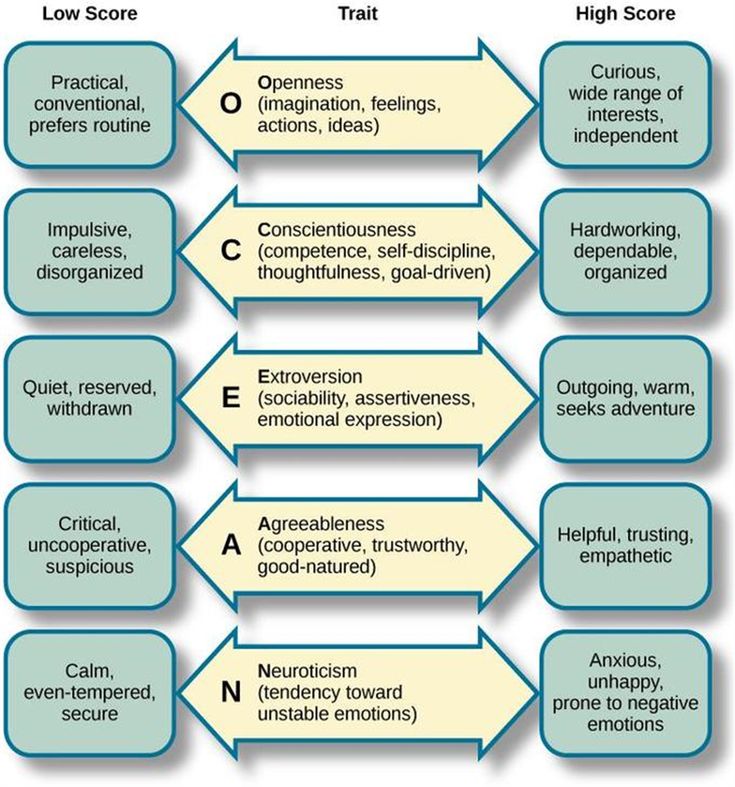
While the FFM is a useful tool for assessing personality traits in technical diving, it is important to remember that it has its limitations.
Self-report inventories are not infallible, and results may be influenced by social desirability bias, where individuals respond in a way that is socially acceptable rather than honestly.
Nonetheless, using personality assessment tools can help technical divers gain insight into their personality traits and take steps to enhance their self-awareness and mitigate risks.
Free Big-5 FFM assessments online
To gain a better appreciation of your personality traits, you can take an FFM assessment online for free. There are a wide number available, including:
Psychology Today Big Five Personality Test
Big Five Personality Test – free, open-source personality test
Open-Source Psychometrics Project – Big Five Personality Test
Conscientiousness and technical diving diligence
In technical diving, conscientiousness is particularly important. Individuals with high levels of conscientiousness are organized, self-disciplined, and able to delay gratification. Technical diving requires a high level of planning, preparation, and attention to detail, all of which are associated with conscientiousness.
Openness to experience and technical diving development
Whilst openness to experience can reflect non-conformity, it is also related to creativity and being receptive to new ideas. This can benefit technical divers because it enables continual development and a willingness to adopt emerging best practices.
Technical diving is a rapidly evolving pursuit. As such, being resistant to change can leave divers stuck using outdated practices, debunked ideas, and less-than-optimal equipment solutions.
Agreeableness and technical diving teams
Similarly, agreeableness is associated with cooperation, communication, and teamwork. Technical divers must work together closely and communicate effectively to ensure their safety and the success of their mission.
Conversely, individuals with low levels of agreeableness may struggle to work collaboratively and may be more prone to conflicts. However, some degree of low agreeableness is necessary for a diver to express opinions or beliefs that may disagree with others. Too much agreeableness means that someone cannot be assertive when it is necessary.
Developing and improving technical diver traits
As technical diving requires high levels of skill and experience, personal development is a crucial aspect of becoming a successful technical diver.
Developing and improving technical diver traits can involve various strategies, including:
- Training and education
- Mentoring and coaching
- Experience and exposure
- Mindfulness and meditation
- Physical and mental fitness
- Team building, and communication skills
Importance of Personal Development in Technical Diving
Technical divers need to maintain their focus, control their emotions, and make rational decisions. As a result, technical divers must continuously develop and improve their skills, knowledge, and personal traits to ensure their safety and the safety of their team members.
By investing time and effort in personal development, technical divers can become more confident, resilient, and adaptable to different diving situations. They can also enhance their problem-solving abilities, decision-making skills, and communication strategies, leading to more successful dives and better overall performance.
Strategies for developing and improving technical diver traits
The following are some strategies that technical divers can use to develop and improve their skills and personal traits:
Training and Education
Technical diving training and education are critical for developing and improving advantageous technical diver traits. By investing in high-quality courses the diver will benefit from the shared experience and mindset of a leading technical diving instructor.
The best technical diving instructors pay a lot of attention to cultivating an appropriate mindset in their students. In turn, that requires them to have a mindset that is refined by a wealth of experience and the lessons they have learned.
Inexperienced tech instructors, and those who only sell technical diving training as a profitable sideline, will not have the capacity to nurture an appropriate mindset in their students. At worst, they will do the opposite and create a dangerous, negligent, mindset.
Mentoring and Coaching
Mentoring and coaching are powerful strategies for improving technical diver traits. By diving with experienced and skilled divers, you can gain insights, feedback, and guidance that can shape you as a diver.
Mentors and coaches can provide technical divers with tailored advice, support, and encouragement, helping them identify their strengths and weaknesses and set realistic goals for improvement. They can also provide constructive feedback on areas that need improvement, leading to more focused and efficient personal development.
It is very important to be selective about who you choose to dive with. Bad habits and attitudes tend to be contagious.
Experience and development
Experience acquisition is powerful in developing technical diver traits. However, it must be remembered that experience alone is no guarantee of positive development.
If experience is not guided by appropriate training it can merely result in the development of bad habits, complacency and dangerous attitudes. Experience has to be influenced by self-awareness if it is to provide developmental lessons.
Mindfulness and insightfulness
Mindfulness and insightfulness are useful strategies for developing and improving technical diver traits. By practicing mindfulness, technical divers are able to introspect more deeply to understand their individual strengths and weaknesses. Additionally, they can focus their minds to examine their underlying attitudes and belief systems.
Also, mindfulness and visualization techniques can help technical divers manage their emotions, gain self-awareness, and maintain their composure in stressful or challenging situations. By incorporating mindfulness and self-insight into their daily lives, technical divers can enhance their overall performance and safety.
Physical and mental fitness
Physical and mental fitness have a role in developing and maintaining positive technical diver traits. First, adhering to a routine fitness and nutrition regimen helps to develop self-discipline and the ability to defer gratification.
Secondly, improving physical fitness helps to avoid mental fatigue when under stress or tired. Mental fatigue not only impedes your ability to think, but it also reduces your emotional control and ability to maintain self-discipline.
Put simply, when your body gets tired, your mental strength also becomes weaker. In turn, your capacity to make critical mistakes in judgment increases. Maintaining physical fitness and a healthy, nutrient-rich, diet helps delay the onset of physical fatigue when diving.
Technical divers can maintain their physical and mental fitness by engaging in regular exercise, such as swimming, running, or weightlifting. They can also practice yoga, meditation, or other mindfulness techniques to enhance their mental well-being.
TL: DR – Technical diving traits in a nutshell
In conclusion, technical diving can be an exciting and rewarding activity, but it also comes with inherent risks that require a high level of skill, knowledge, and preparation. As a technical diver, it’s important to develop and maintain the necessary traits and qualities to ensure your safety and success in the water.
By self-assessing your personality traits, adopting a growth mindset, and utilizing effective strategies for personal development, you can become a better and more confident technical diver. Remember, technical diving is a journey, and with dedication and persistence, you can continue to grow and improve your skills for years to come.
- Technical diving benefits from a unique set of personality traits and attributes.
- Personality assessments can help divers understand their strengths and weaknesses, and develop strategies to improve their skills.
- The Five-Factor Model (FFM) is a widely-used personality assessment tool that can help technical divers understand their personality traits and how they relate to diving.
- Personal development is essential for technical divers and can be achieved through strategies such as training, mentoring, experience, mindfulness, and fitness.
- Communication skills and teamwork are also critical for technical diving success and should be developed through regular practice and training.
About The Author

Andy Davis is a RAID, PADI TecRec, ANDI, BSAC, and SSI-qualified independent technical diving instructor who specializes in teaching sidemount, trimix, and advanced wreck diving courses.
Currently residing in Subic Bay, Philippines; he has amassed more than 10,000 open-circuit and CCR dives over three decades of challenging diving across the globe.
Andy has published numerous diving magazine articles and designed advanced certification courses for several dive training agencies, He regularly tests and reviews new dive gear for scuba equipment manufacturers. Andy is currently writing a series of advanced diving books and creating a range of tech diving clothing and accessories.
Prior to becoming a professional technical diving educator in 2006, Andy was a commissioned officer in the Royal Air Force and has served in Iraq, Afghanistan, Belize, and Cyprus.
In 2023, Andy was named in the “Who’s Who of Sidemount” list by GUE InDepth Magazine.
Purchase my exclusive diving ebooks!
Originally posted 2023-04-29 15:58:07.


